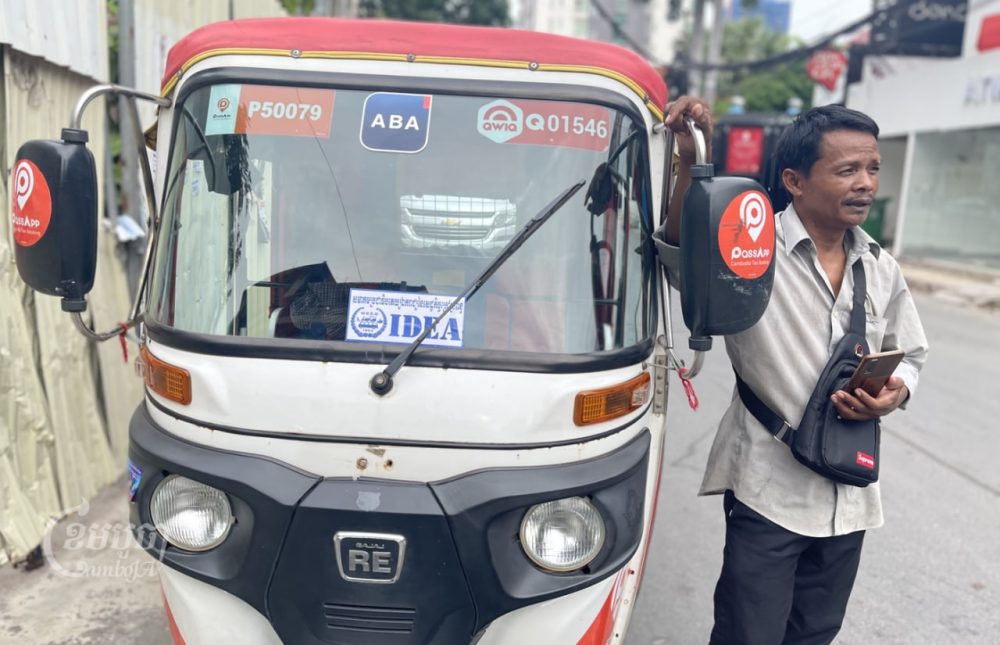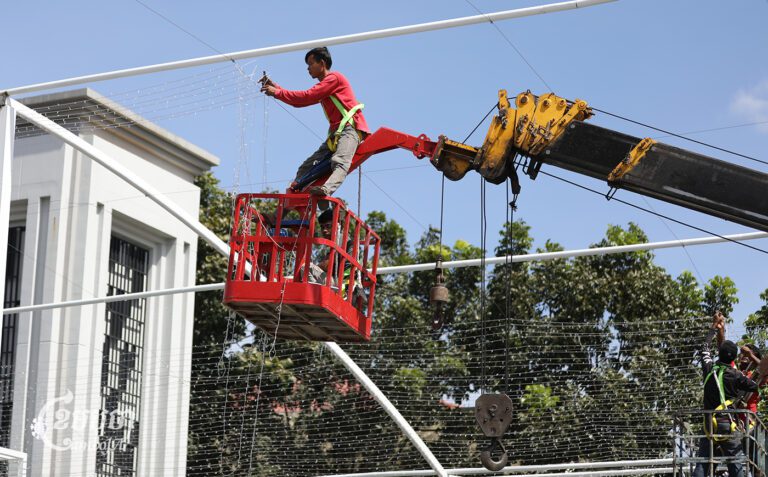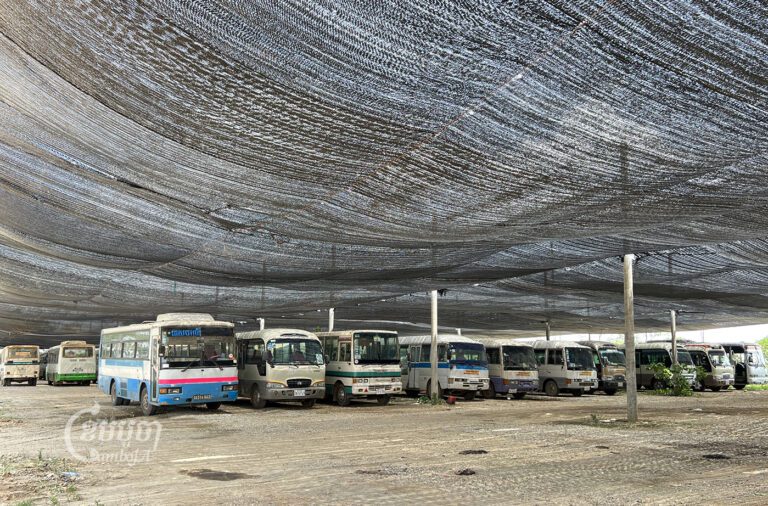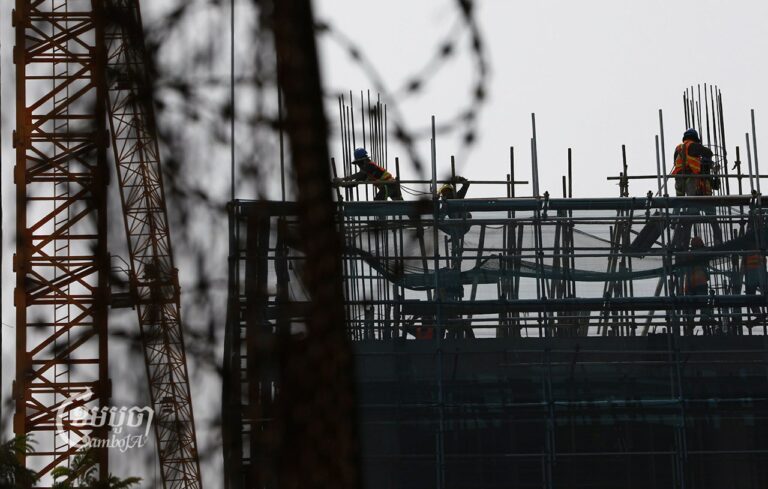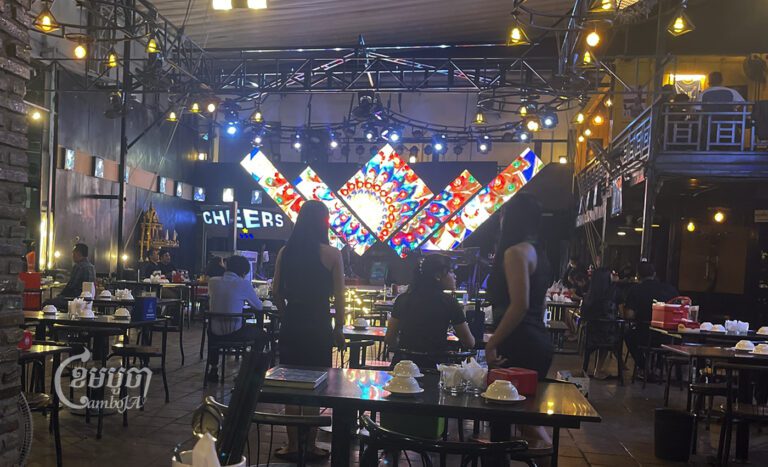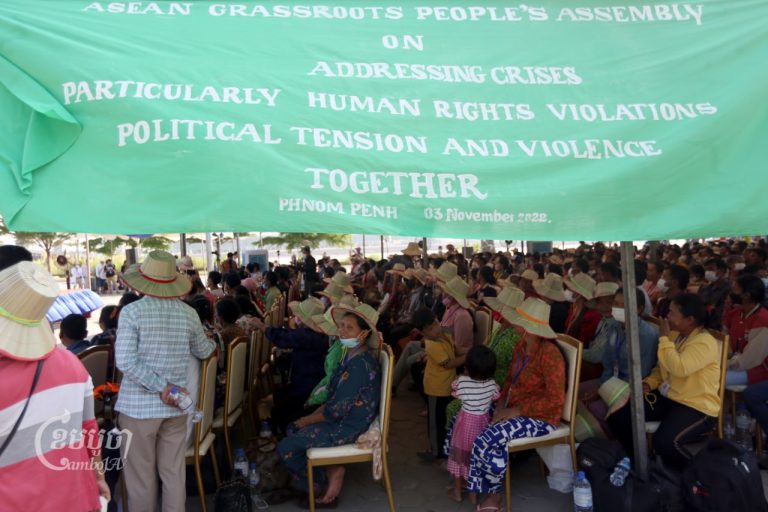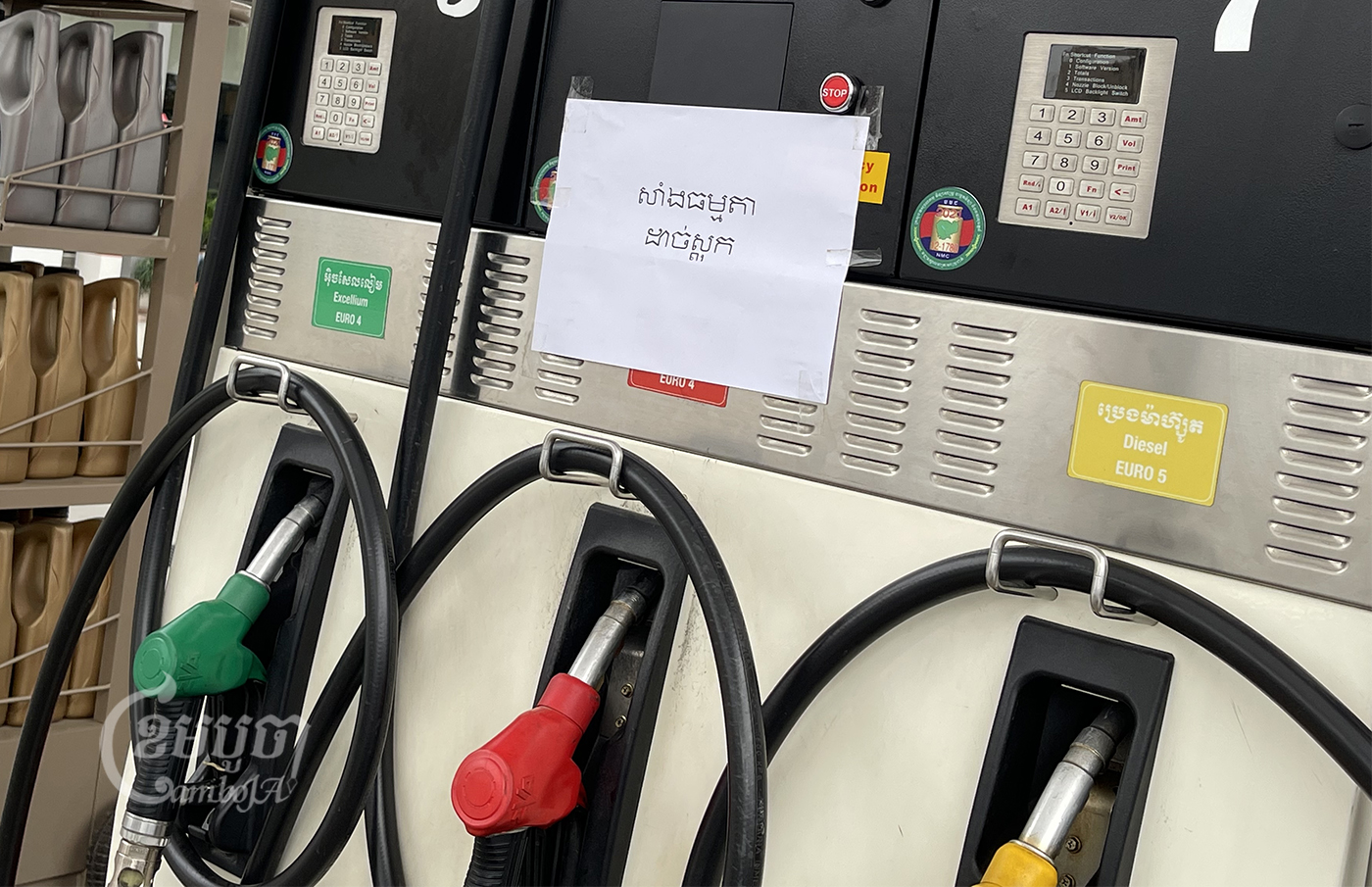Chhum Dim’s sole income—about 30,000 riel ($7.50) a day—comes from carting passengers around Phnom Penh in his three-wheeler motor-carriage. Before the pandemic, the 42-year-old tuk-tuk driver from Svay Rieng province said he earned around $20 to $30 a day. Now, he takes in just enough to cover his daily costs for food and gasoline.
While Dim has never been in a roadway collision, he said the risks for tuk-tuk drivers like him are high. So, he wants the government to offer accident insurance to drivers, in addition to the general healthcare coverage that is available to more than 2,000 informal workers for the first time this month as part of a pilot project run by the National Social Security Fund, the government’s pension, healthcare and accident insurance program.
“We have been facing more risks on the road from day to night, but [NSSF] told us the tuk-tuk drivers do not have specific working hours, so they do not provide accident insurance,” he said. “We insist the [Labor] Ministry review the policy, so that it would benefit vulnerable groups like us.”
The pilot scheme will target two groups of informal workers in Phnom Penh: 2,050 tuk-tuk drivers and domestic workers from informal workers’ group Independent Democracy of Informal Economic Association (IDEA) and 300 members of the Association of Domestic Workers (ADW).
But workers and labor advocates say the pilot has drawbacks, including no workplace accident coverage for tuk-tuk drivers and costs that many workers can’t afford.
Vorn Pao, IDEA’s president, said his association has been raising awareness about NSSF benefits among its 15,000 members and identified 2,050 to participate in the pilot. But he wants the accident insurance offered to domestic workers also extended to tuk-tuk drivers.
“The government previously did not include informal workers in the Social Security Fund, and with this policy, informal workers should have access to the accident healthcare insurance,” he said.
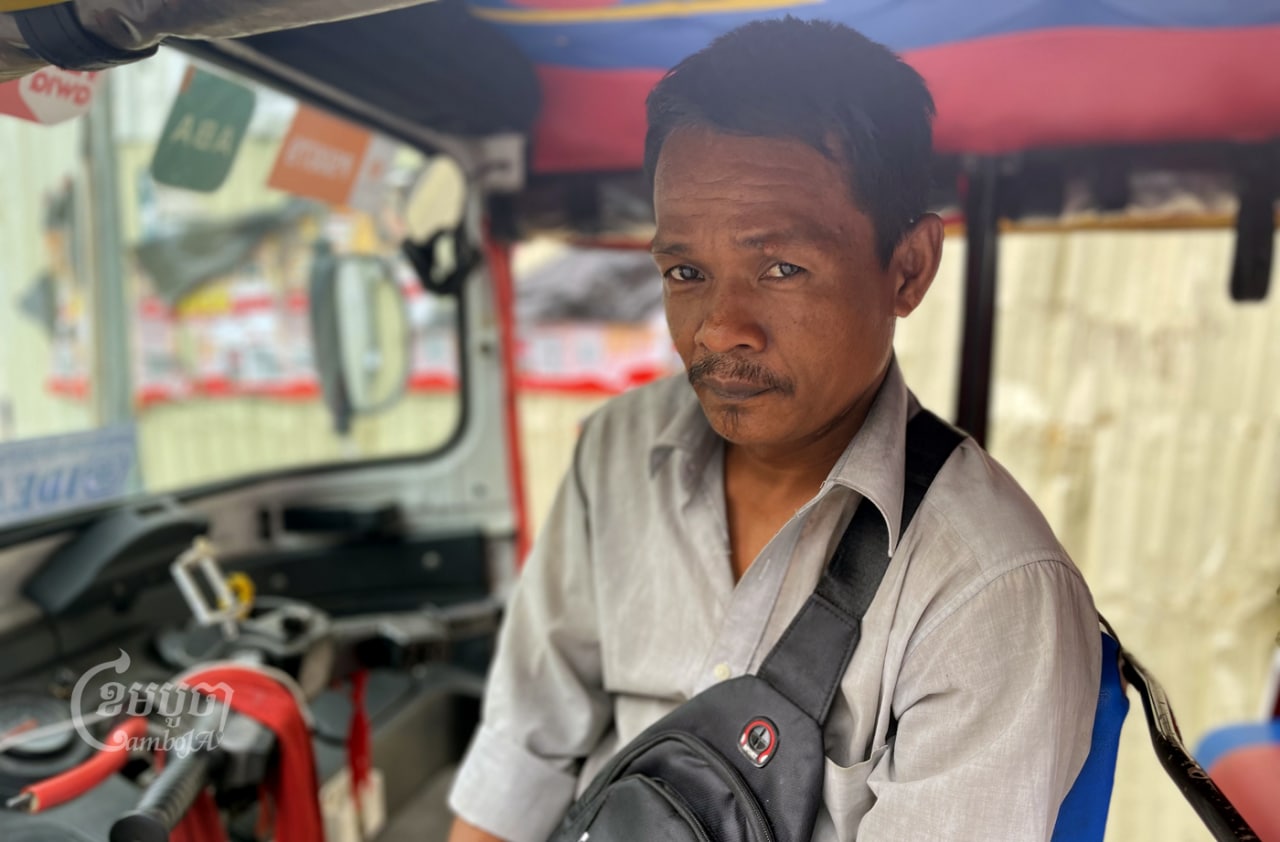
Under the pilot scheme, domestic workers will receive standard NSSF benefits, including free medical care and 70% of wages while on paid sick leave or maternity leave, up to 90 days. But tuk-tuk drivers will only be offered medical care.
Domestic workers must pay 3.4% (0.8% for healthcare and 2.6% for accident coverage) of their average monthly wage, typically around $200, to receive the benefits, which means paying about $40 for six months of coverage. Tuk-tuk drivers must pay 93,600 riel (about $22.50) every six months.
Employers are required to contribute to their employees’ NSSF benefits under the 2019 Law on Social Security Schemes, but so far few informal workers, who are often legally self-employed, like tuk-tuk drivers, access NSSF benefits.
The 2019 law says domestic workers and their employers must jointly contribute to pension and healthcare benefit schemes while employers must cover contributions for occupational risk, or accident, insurance.
Pension and healthcare benefits for self-employed people are to be regulated by sub-decree, according to the law. It does not specify contribution rules for occupational risk insurance for self-employed people.
“For the self-employed, they are still waiting for another sub-decree to implement the policy,” said Pao, from IDEA. “If the [pilot] project is successfully implemented, I think [NSSF] will issue another sub-decree for self-employed people to register with NSSF.”
Even though the Law on Social Security Schemes passed in 2019, Pao said its implementation in regards to domestic workers accessing benefits remained behind.
“I think this is related to the authorities’ political will,” he said.
“Unaware” Employers
Lim Sokleng, 54, said that after working nearly 20 years as a domestic worker, she is currently unemployed after her foreign employer recently left Cambodia.
Sokleng, a member of the domestic workers’ association, said when she finds a new job she will ask her employer to cover the costs of her NSSF benefits.
“It is important for me because it will reduce the financial burden when [I] receive [medical] treatment since [I’m] poor,” she said.
Yim Sothy, ADW’s president, said even though the law requires employers to contribute to healthcare and accident insurance for domestic workers, it would take time to implement the pilot scheme.
“Despite the fact that we have the law, it has not yet been widely publicized among employers and the employers are unaware of it,” she said.
Sothy said her organization would first raise awareness among domestic workers about the scheme’s benefits and then workers could discuss contributing to NSSF with their employer.
Sothy said among more than 800 domestic workers in ADW, only eight have secured NSSF benefits, prior to the pilot rollout, because their employers agreed to contribute. She said the association plans to register 300 domestic workers for NSSF benefits.
Labor Ministry spokesperson Heng Sour told CamboJA that under the labor law, there is no distinction between formal and informal workers. He said an exchange of labor for regular wages constitutes an employment contract.
“In the labor law, it only talks about labor relations. So, whether the employer is a company or an individual, they have an obligation to [contribute to] the [NSSF] scheme,” he said.
Sour said the ministry is continuing to push employers to contribute to their workers’ NSSF benefits.
“[We] are calling on [employers] who offer [payment for services] to participate in the project. We need to explain to them,” he said.
Heng Sophannarith, NSSF’s deputy director-general, said tuk-tuk drivers were only being offered healthcare coverage, not accident insurance, since they are considered self-employed.
“For the tuk-tuk drivers, we cannot control them. We do not know their working hours and they do not have an employer, so accident is not provided and they are only offered healthcare,” Sophannarith said.
If the pilot is successful, the scheme will be offered to workers in other informal sectors, including construction, he said.
At the end of last year, more than 2.5 million workers had accident insurance and over 2.7 million workers had health insurance through NSSF.
Dim, the tuk-tuk driver who plans to register for NSSF benefits, is thankful for the health insurance offered under the pilot scheme.
“This will be important for us as tuk-tuk drivers who will receive health insurance [benefits], such as health checkups,” he said.
In the past, Dim said he had an IDPoor card, which grants free healthcare to holders who are registered as low-income, but he never used it.
Low-income Cambodians have long complained of limited healthcare options and solicitation of informal fees while seeking government-funded medical treatment.
“We need better service,” Dim said. “We would like to see the partner hospitals provide equal treatment and don’t discriminate against tuk-tuk drivers because we are poor.”


